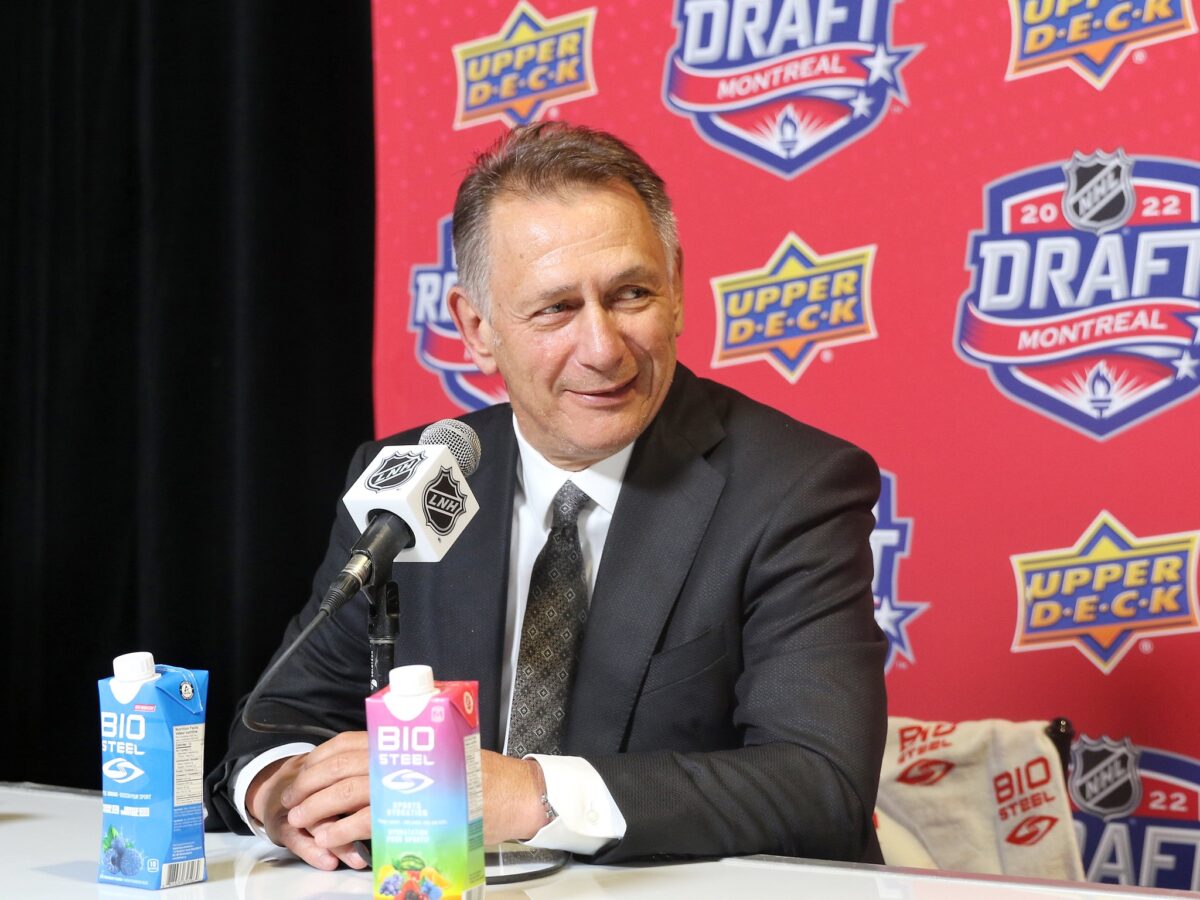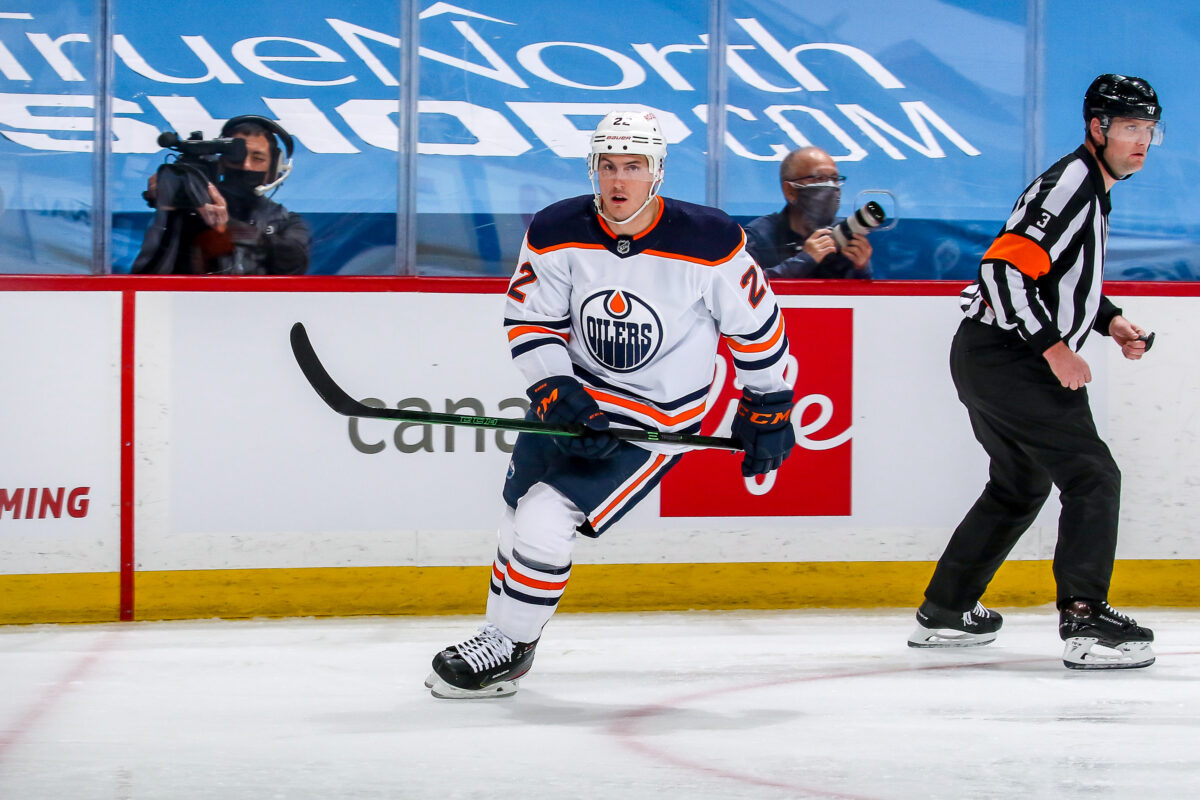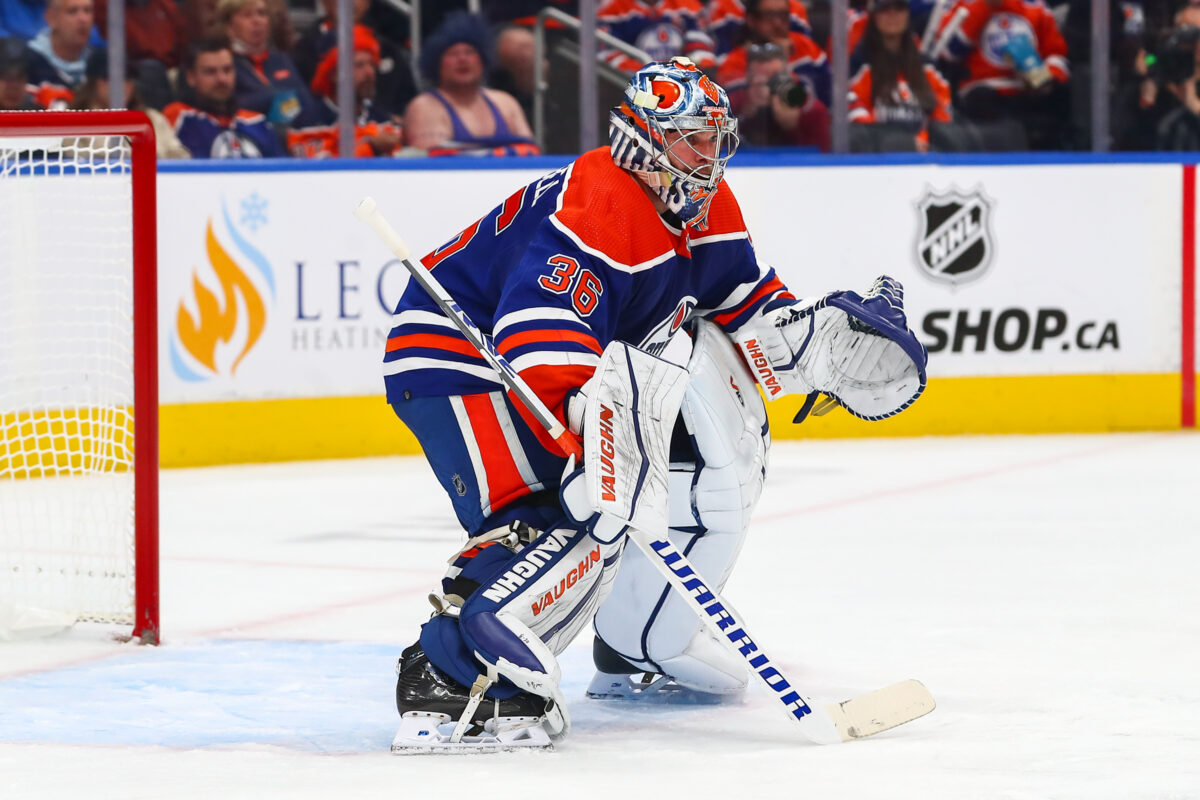On Dec. 13, NHL insiders, including Elliotte Friedman and Frank Seravalli, reported that the league’s salary cap may only increase by $1 million next season, from $82.5 million to $83.5 million. If this is indeed the case, it will mark the second consecutive year that the cap has increased by only $1 million after two years when the cap stayed flat at $81.5 million, mainly due to revenue losses due to the pandemic. This has been and will continue to be a serious issue for a number of teams.

One of those teams is the Edmonton Oilers, who have been cap-strapped for years, in large part due to the $21 million they have tied up in their two top players, Connor McDavid and Leon Draisaitl. Of course, that money is well deserved and, if anything, an underpayment, which goes to show how difficult it can be to build a Stanley Cup-contending team in the salary-cap era. Unfortunately, things won’t get any easier moving forward if the cap is limited to a $1 million increase.
Oilers Have Several Key Players to Re-Sign
The Oilers have roughly $72.6 million accounted for next season. That in itself isn’t the issue; however, that total does not account for players they will surely want back in Ryan McLeod, Evan Bouchard, and Stuart Skinner, all of whom are set to become restricted free agents (RFA) at season’s end.

McLeod, who has missed several games due to an undisclosed ailment, signed a one-year, $798,000 extension late this offseason. That came after a season in which he scored nine goals and 21 points in 71 games. This season, he has scored at a slightly better pace, with three goals and eight points through 21 outings. There is plenty of time left, but if his scoring continues on pace, he will only require a minimal raise.
Bouchard is a different story. The 23-year-old is in the final season of his entry-level deal and had a very impressive 43 points a season ago. His offensive game started slow in 2022-23 but has picked up as of late, giving him 12 points in 30 games. That said, his defensive play, both this season and last, has drawn the ire of many Oilers fans. Numbers pay, however, and he has shown he can produce, meaning he will likely receive a significant upgrade in salary from his current cap hit of $863,333.
Related: Oilers’ Connor McDavid Signs New Deal With Upper Deck
Last up is Skinner, whose future contract is more difficult to predict than Bouchard’s. Also, in the final season of his entry-level deal, the 24-year-old netminder was expected to be Jack Campbell’s backup but has quickly emerged as the number one due to his counterpart’s struggles. He has been fantastic through 17 games, posting a 2.76 goals-against average (GAA) along with a .919 save percentage (SV%). Again, there are plenty of games left, but if he keeps this up, he, too, could be in line for a serious raise from his $750,000 deal.
These aren’t the only Oilers players on expiring deals, either. Both Jesse Puljujarvi and Klim Kostin are set to become RFAs, while Derek Ryan, Mattias Janmark, Devin Shore, and Ryan Murray will all be unrestricted free agents. General manager Ken Holland will likely be fine with several of these players heading elsewhere, but he will need to replace them in some facet, whether it be free agency, trade, or prospects earning spots with the team.
The final option is the most ideal, as they won’t have much money to do anything else. If Bouchard and Skinner ink deals in the $3.5 million range, while McLeod gets a deal around $1.5 million, that right there is $8.5 million of the roughly $11 million in space the Oilers are set to have for the 2023-24 campaign, which will make it extremely difficult to solidify some weak spots on the team.
Oilers Need to Move Out Money
While it doesn’t need to happen just yet, the Oilers and Holland will likely need to find ways to get themselves some cap space this offseason. That, unfortunately, is only possible via a buyout or trade.

One player they will likely look to move on from is Tyson Barrie, who is in the second year of a three-year deal that carries a $4.5 million cap hit. After a disappointing 2021-22 season, the 31-year-old has been much better offensively in 2022-23, with 21 points through 30 games. Like Bouchard, however, he struggles defensively and simply isn’t needed, given some of the other players they have.
A buyout would save the Oilers $2.5 million next season but would also result in $1.25 million in dead cap for the 2024-25 campaign. Given that by the summer, he will be entering the final year of his deal, he should be a moveable player in a trade, especially if he is able to continue this offensive pace. Being able to get his contract off the books would be huge for Holland to ensure he can address other needs with this roster this summer.
Kailer Yamamoto, who is in the first year of a two-year contract that carries an average annual value of $3.1 million, could also be on the move. While the 2017 first-rounder has shown potential, his scoring is far too inconsistent for the team to be patient with him. Unless his numbers improve as the season continues, moving him this summer may prove difficult, though a rebuilding team might consider it.
You may also like:
- Projected Lineups for the Oilers vs Kings – Game 3
- McDavid’s Stirring Locker Room Speech Captures Oilers’ Confidence
- Oilers & Skinner Need Bounce-Back Performance vs. Kings in Game 3
- 4 Major Reasons the Oilers’ Power Play Is Unstoppable
- Prime Video to Carry National Monday Night Games in Canada
The final player who could be moved, though it may be impossible to accomplish, is Campbell. The five-year, $25 million deal Holland gave him this offseason has been an outright disaster so far, with reporters like Friedman even suggesting he be sent to the American Hockey League to get his game back on track. Through 14 games, he has a despicable 4.04 GAA, along with a .875 SV%.
The one thing going for the Oilers is that Campbell is known to be very streaky. If he can get his confidence back and get hot down the stretch, teams desperate for a goaltender will take notice. At this point, Skinner is quickly proving he can be a starter at the NHL level or, at the very least, be part of an evenly split duo, which makes Campbell expendable.

Moving Campbell would free up significant money for the Oilers, as they should have no problem finding a much cheaper option who can split time with Skinner next season. As mentioned, however, his play will need to improve in a major way for another team to even consider trading for him. While a buyout would save some money over the next four seasons, it would be an extremely tough pill to swallow, given that he would remain on the books with a cap hit of $1.54 million from the 2027-28 season until the end of 2030-31.
Oilers Need to Pray Cap Increases More
Even if many things need to go right for it to happen, NHL commissioner Gary Bettman mentioned that there is a chance the salary cap will increase by more than $1 million next season. Unfortunately, it isn’t a likely situation, though one that the Oilers organization and their fans will be praying for. If not, there will be some huge and crucial decisions for Holland and his management team to make, ones that they need to get right for their two superstars to have the best chance possible of competing for the Stanley Cup.